This site may not work properly using older versions of Edge and Internet Explorer. You should upgrade your browser to the latest Chrome, Firefox, Edge, Safari, or any other modern browser of your choice. Click here for more information.
Your Stories
This is where we tell your stories, cover topical issues and promote meaningful initiatives.
From ED to PHC: Leonie's Leap of Faith
Leonie Higgs made a ‘leap of faith’ into remote health in late 2021 when she took a primary health care position in Cape York. We caught up with her in January to discuss her new sense of purpose, staying close with family, and her experience as a Māori nurse in remote Australia.
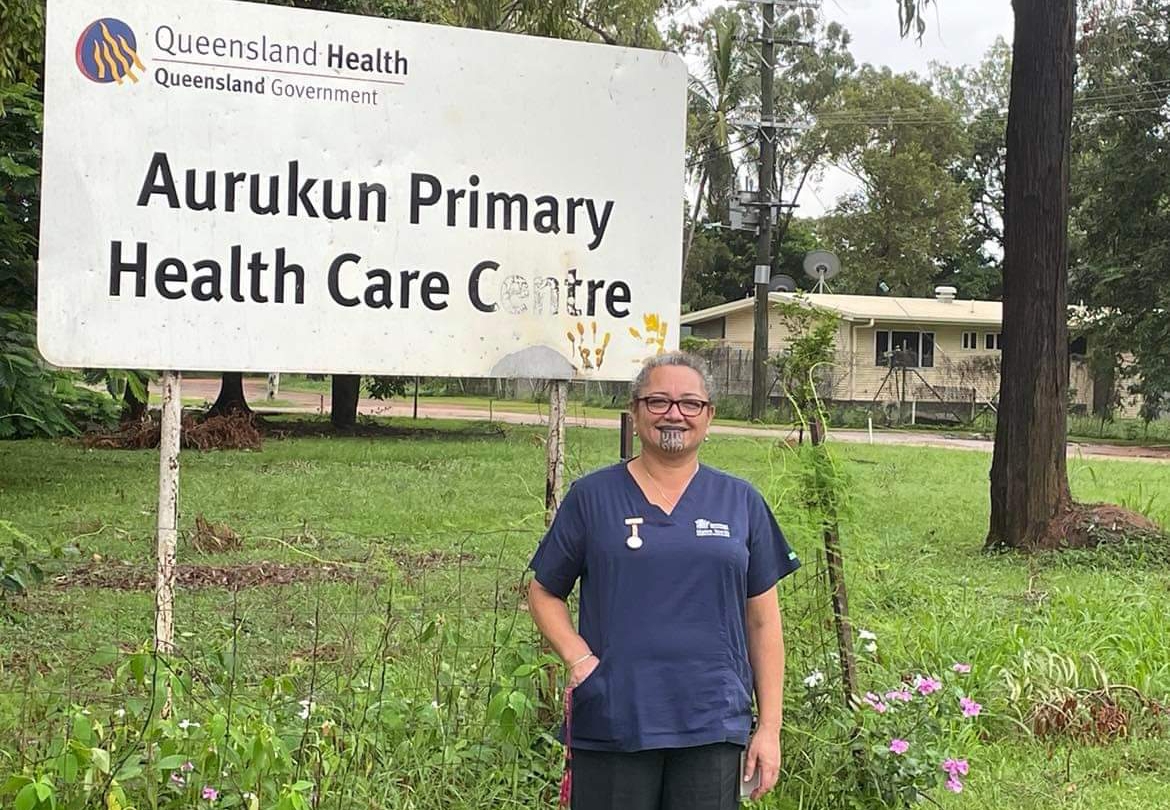
Leonie Higgs has spent the last five months working full-time for Aurukun Health Service, after making a radical change from a career in metropolitan hospitals and major trauma centres.
“I was at that stage of my career when I was thinking, I’m tired of emergency, I’m tired of trauma,” Leonie says. “There has to be something else out there in nursing.
“It’s not until you actually come out into the remote communities that you realise, yeah, I can make a difference… It quickly becomes clear how much nurses are needed and appreciated.
“I feel more valued out here than in the major hospitals. [There] you stabilise clients and move them onto their speciality, and that’s the end of that. Whereas here it’s more chronic. It’s health literacy, education, and being here all the time.
“In the metro setting, all the junior doctors or NPs that are coming through do all the things like plastering, suturing, stapling, managing people with pain. Whereas here, you get the opportunity to learn all of these skills and our scope opens up.”
During her two days off a week, Leonie occasionally heads to Aurukun Landing, listens to music (“Strictly RnB” including SIX60 and L.A.B.), and studies her masters in Gerontology, which she is set to complete by 2023.
When out and about, she’s often in the company of camp dog Boo, with whom she’s developed a mutual bond.
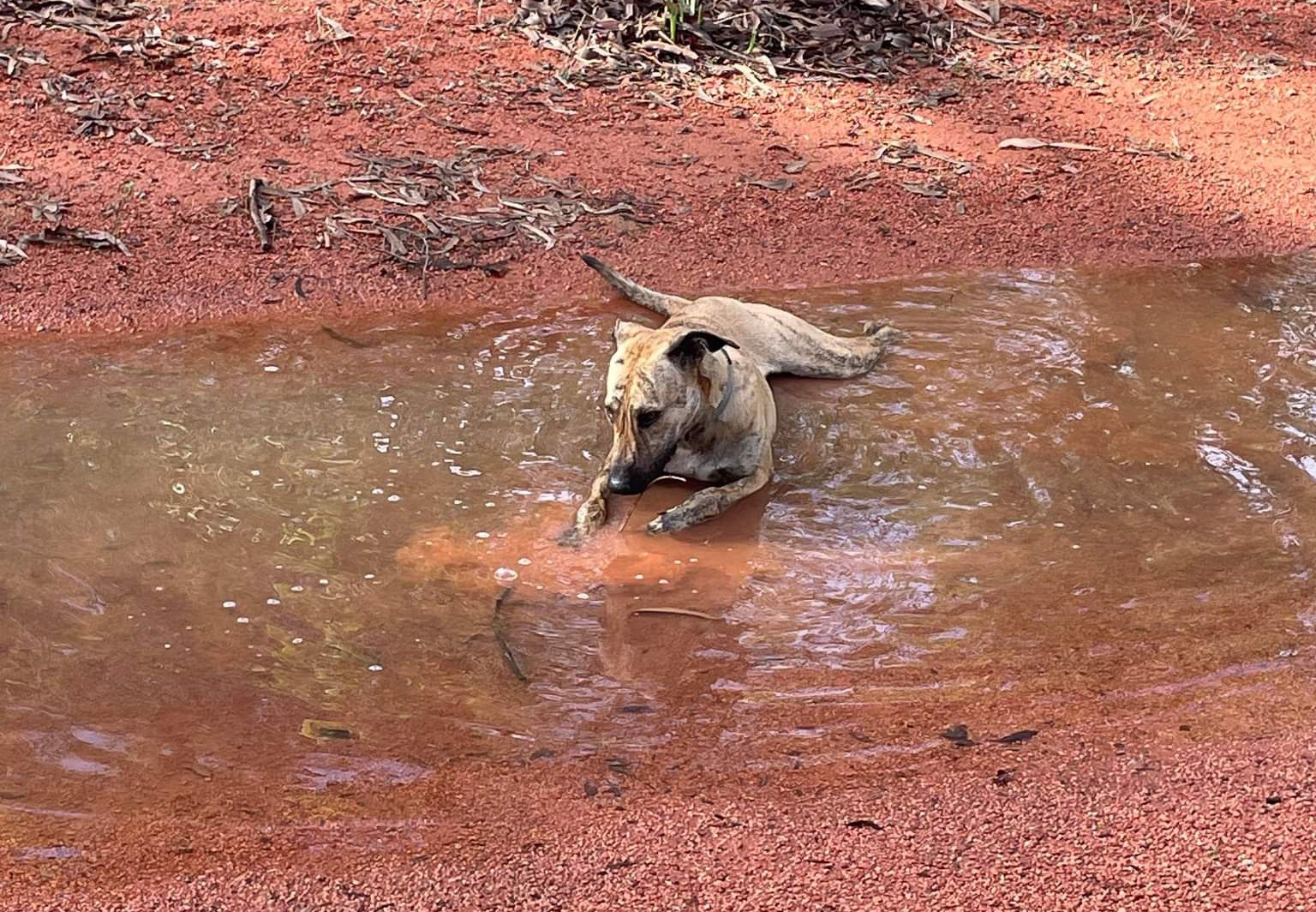
Camp dog Boo.
Leonie says that coming from a Māori background, her family is her life force, and so it’s been hard to be apart. However, she’s found ways to stay close.
“I talk to them every day, I Face Time them,” she says. “My family is really, really good. They understand. I discussed it with my family [before leaving] and my husband said to me, ‘If that’s what you want to do, you go. If you find you enjoy it, I’ll stay home with our youngest child and take care of the house’.”
Maintaining these connections with family and developing new connections with her team has helped Leonie to manage the work and the on-call hours.
“You know that if anything goes pear-shaped while you’re at work, they’re there,” Leonie says, speaking of her team. “They’ve got your back. These people were all strangers to me before I came here, but you learn to rely on your colleagues. You treasure their skills and what they have to offer.”
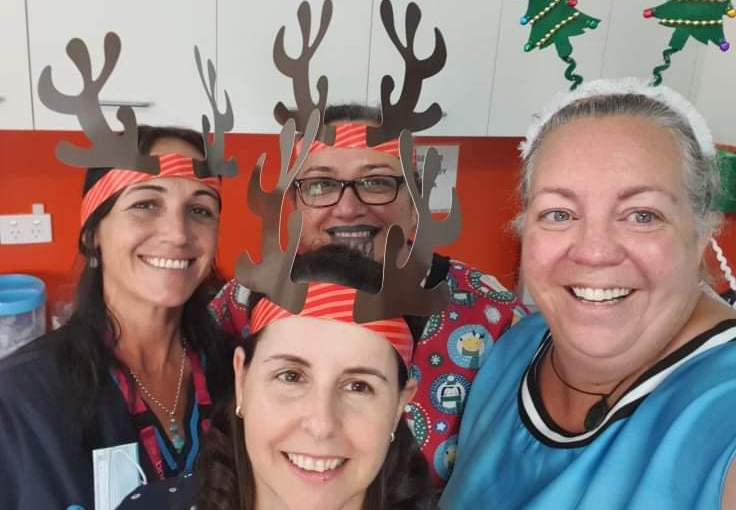
Kristy Benjamin, Maxine Hafey, Jeanene Monahan and Leonie (back).
The connections she has formed with community have also helped Leonie to feel at home: “[People in the community] get to know you and they ask for you specifically. It’s like you get to be part of their families.
“I’ve got one lady here who wanted to adopt me. I said to her ‘Thank you so much, I appreciate it, but I have a family’.
“She’s got diabetes, and she knows I’m going on leave tomorrow, and she says to me, ‘Girl, I’ll come see you at the airport.’ I said, ‘Oh no, Auntie, don’t come and see me off because I know it’s difficult for you to get there and I’ll be back in three weeks.’ You build those relationships with the locals that you treasure.”
Leonie has a Māori moko kauae, a traditional facial tattoo that represents who she is, where she is from, and the story of her people, the Ngāti Porou, who are custodians of the Gisborne region on the east coast of New Zealand’s North Island.
Her heritage increases her awareness of the struggles faced by Australia’s First Peoples, but she emphasises that no one can understand these better than Indigenous Australians themselves.
“My people have come such a long way with health literacy,” she says. “We have doctors, we have Māori nurses. And you come to this big country called Australia and into these remote communities and see how some First Nations people are living in challenging conditions and having to travel long distances to access basic health services.
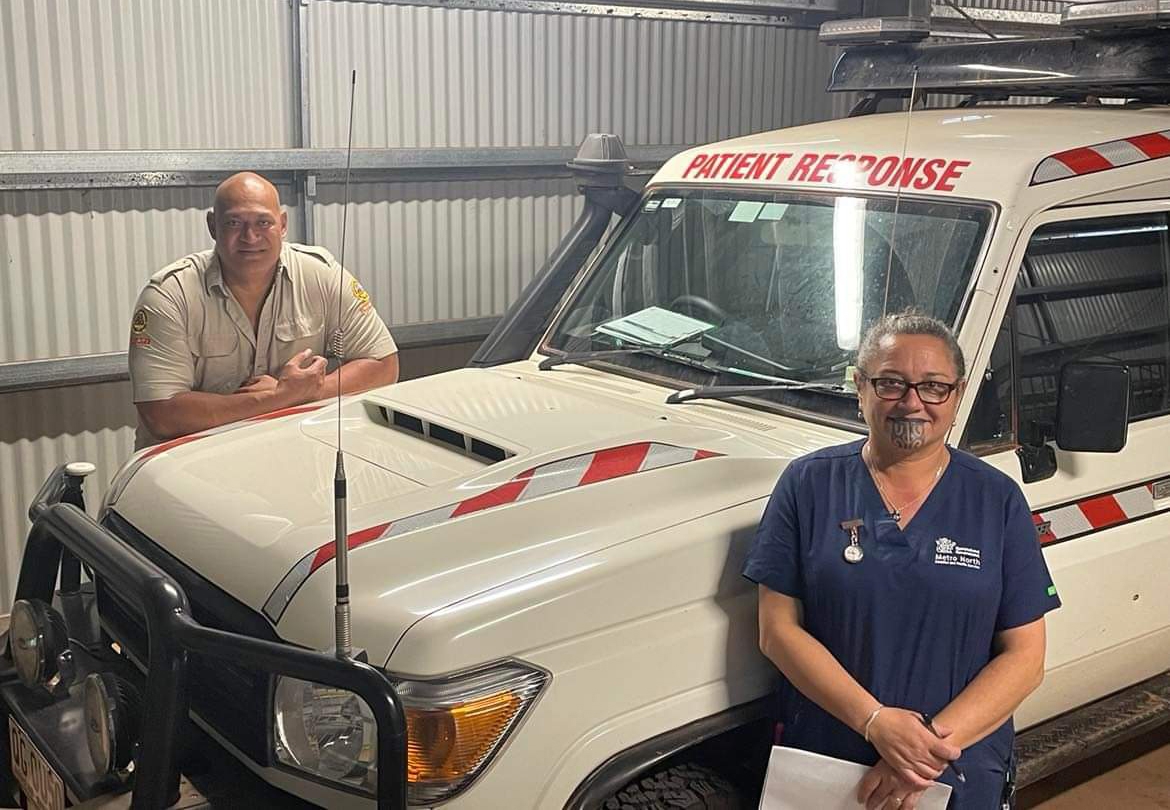
Leonie and Joe Tuitupou (Security)
“You have to get Indigenous workers for Indigenous people. They understand, they know what they’re going through, and they can relate.
“Even though I’m black, they class me as white because I’ve dropped into this community. Some of them have never seen a Māori person before. They’re like, ‘What you got that tattoo on your chin for?’ When you sit down and explain it to them, they’re like, ‘Oh, that’s beautiful.’
“We need to support our First Nations people to help improve health outcomes, so that Elders can pass on their valuable knowledge and skills to the next generations to follow.”
When CRANAplus spoke with Leonie in January, she had recently applied for her contract to be extended for six months. While she isn’t sure what the next five years hold, she says “One thing I know for sure is that I absolutely enjoy being a remote nurse and being a part of a team that really cares. It’s liberating to feel that you’re contributing to the community and making a difference.
“If I could have done this long ago, I would have. Hindsight’s a beautiful thing.
“I think [metropolitan nurses] should just do it, if they have even the tiniest inkling to come remote. Otherwise, they don’t know whether they’ll like it or not. You miss out on so many things if you aren’t open to new experiences. You’ve got to take the plunge.”
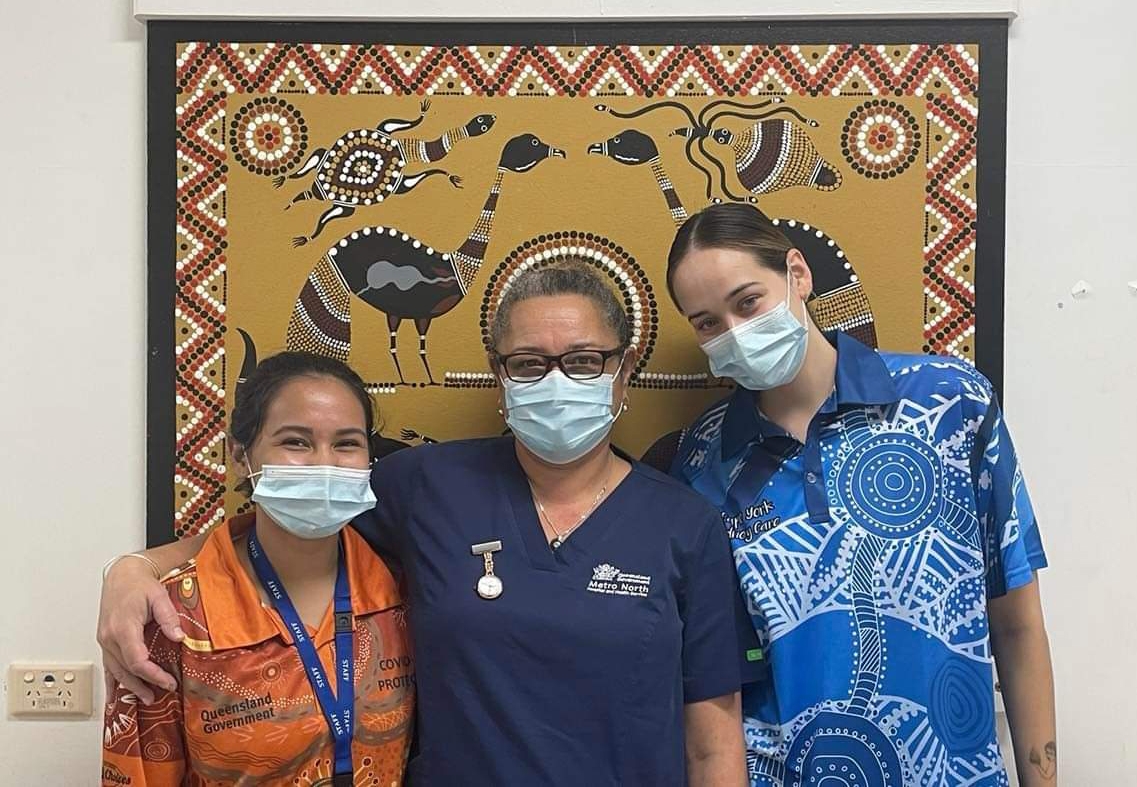
Atima Bin-Juda, Leonie and Maddison Blake.
You can take the first step towards a career in remote nursing by emailing TCHHS-NursingMidwifery-Recruitment@health.qld.gov.au